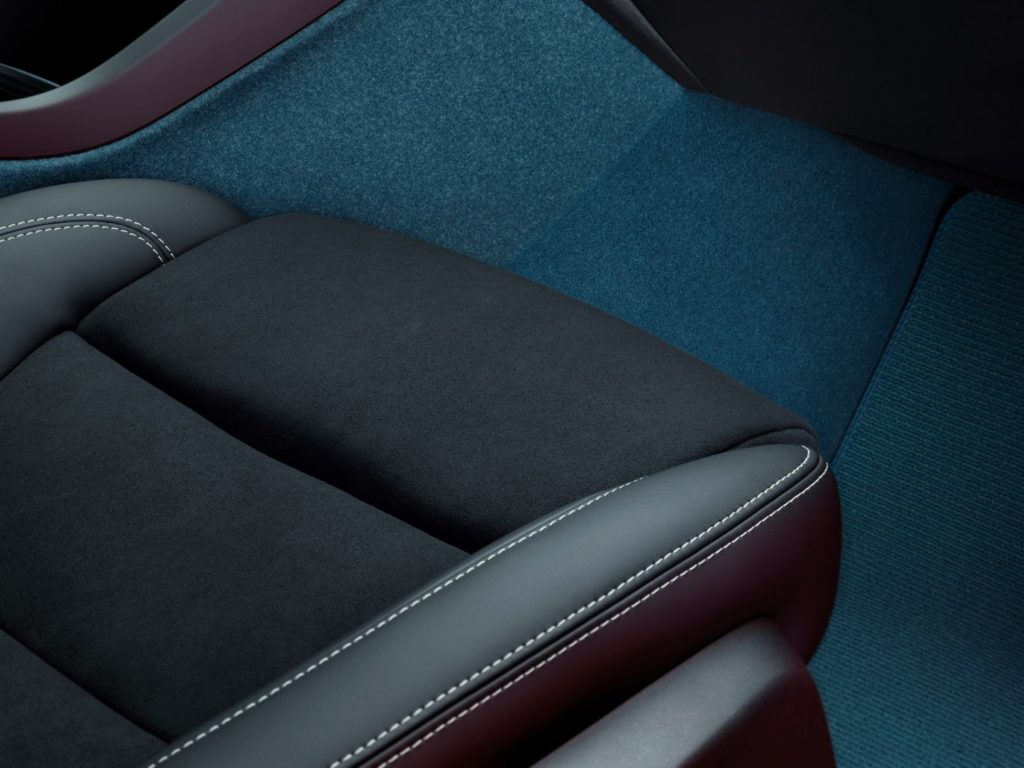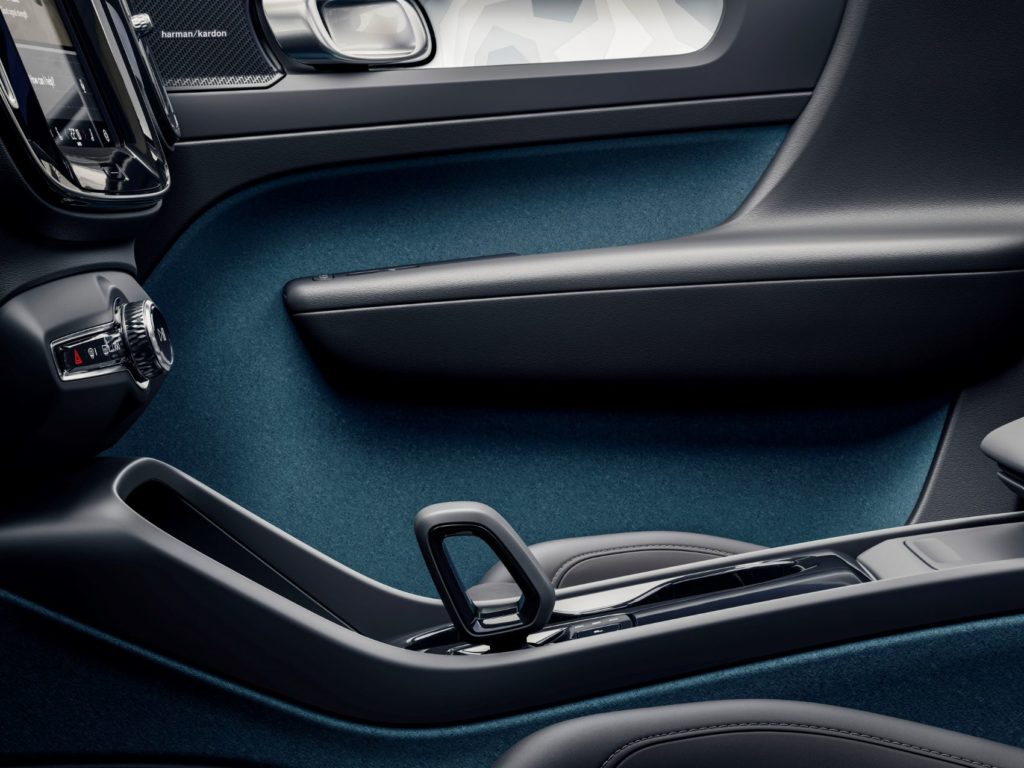Swedish manufacturer Volvo is marching to similar tunes of sustainability and eco-friendliness as other major automakers in shifting from gas to electric. This changing philosophy is evident in new electric cars like the Mazda MX-30 EV (and its cork-tastic interior) and BMW iX. Volvo is going further by taking an ethical stand for animal welfare. From here on (and starting with the C40 Recharge electric crossover), every production Volvo EV will be leather-free.
Cows & Global Warming
Volvo says livestock contributes 14 percent of global greenhouse emissions, and most of it is from cattle farming. According to the University of California, Davis, cattle are the number one agricultural source of greenhouse gases worldwide, and a single cow will belch out 220 lbs. of methane each year. Although methane from cow farts has a shorter lifespan than carbon dioxide, the former is 28 times more potent in warming the atmosphere.
“Being a progressive car maker means we need to address all areas of sustainability, not just CO2 emissions,” said Stuart Templar, director of global sustainability at Volvo Cars, and who happens to have the coolest name in the world.”Going leather-free inside our pure electric cars is a good next step towards addressing this issue.”

Going Completely Vegan
Volvo believes going leather-free is a step in the right direction, but “doing so alone does not make a car interior vegan” (Volvo really said vegan in its press release, not making that up). In essence, Volvo wants to reduce the use of residual products from livestock production commonly used within or in the production of plastics, rubber, lubricants, and adhesives, either as part of the material or as a process chemical in the material’s production or treatment. “Finding products and materials that support animal welfare will be challenging, but that is no reason to avoid this important issue,” Templar added.
Volvo will continue using wool, but the automaker will only source wool materials from suppliers that are certified to source responsibly. In addition, Volvo promises to ensure traceability and animal welfare in its wool supply chain.
From Bottles to Textiles
Instead of using cowhide, Volvo will look to recycled plastic and discarded organic items from the wine industry for its next generation of sustainable interior materials. For instance, Volvo created Nordico, a new material derived from recycled PET bottles. It’s also working on bio-attributed materials from sustainable forests in Finland and Sweden. And like the Mazda MX-30, incoming Volvo electric vehicles will also have interior materials from recycled cork.

A More Green Future
Volvo plans to have 25 percent of all materials in its new vehicles consist of bio-based and recycled content. The automaker is looking to become a fully circular business by 2040 and only source materials from suppliers who use 100 percent renewable energy by 2025. Volvo also wants to be a fully electric manufacturer by 2030.
“This is a journey worth taking,” Templar concluded. “Having a truly progressive and sustainable mindset means we need to ask ourselves difficult questions and actively try and find answers.”
Alvin Reyes is an Automoblog feature columnist and an expert in sports and performance cars. He studied civil aviation, aeronautics, and accountancy in his younger years and is still very much smitten to his former Lancer GSR and Galant SS. He also likes fried chicken, music, and herbal medicine.
Photos & Source: Volvo Car Group.
Original article: Volvo Commits to Sustainable & Leather-Free Interiors for Future EVs
from Automoblog https://ift.tt/3Aih7SV
No comments:
Post a Comment